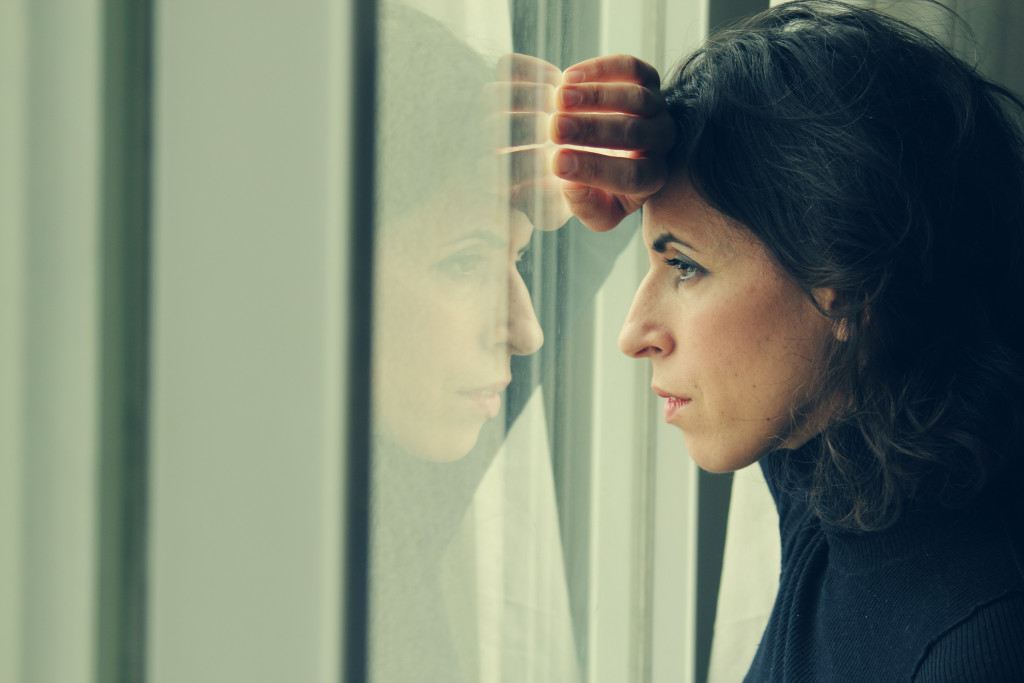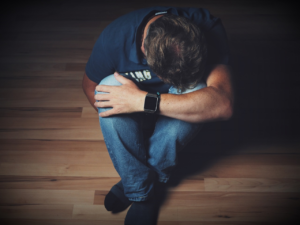
Isolation is a common trademark of alcoholism. While there are numerous reasons why many alcoholics retreat from the outside world, the sobering truth is this: isolation fuels addiction and prevents many alcoholics from finding recovery.
Isolation and Alcoholism Often Go Hand in Hand
For some alcoholics, isolation develops over time as a symptom of alcoholism. Being alone and isolated allows a person to drink excessively without being questioned by friends and family and makes it easier for them to deny they have a problem. Further, as they spend more and more time drinking, many alcoholics consequently retreat from social life and neglect other responsibilities so they can spend more time drinking.
While isolation often develops as a symptom or by-product of alcoholism, other times, isolation is a separate issue that (among other factors) triggers alcoholism. For example, one-fifth of individuals with a social anxiety disorder also suffer from an alcohol use disorder (AUD) [1].
Social anxiety disorders cause people to experience excessive fear of social settings, leading some with the disorder to spend much of their time at home in isolation. In these cases, alcohol may be abused in an attempt to alleviate social fears and cope with the psychological issues their disorder and subsequent isolation brings.
Depression is another disease strongly connected to alcoholism, with at least 30 to 40 percent of alcoholics experiencing a depressive disorder, according to Addiction Center [2]. Depression often causes feelings of isolation, loneliness, low self-esteem, fear, and a lack of interest in everyday activities, leading many with depression to isolate themselves from the outside world. Many with depression turn to alcohol to alleviate the psychological pain they’re dealing with, which in turn, can lead to alcohol abuse and more isolation and depression.
Further, many people turn to alcohol as a way to cope with pain and trauma. The death of a loved one, loss of a job, a history of abuse, or a broken relationship can all cause people to push loved ones away, retreat in isolation, and turn to alcohol as a coping mechanism. The alcohol becomes a sole “comforter” and “friend,” eventually pushing everyone else out.
 Finally, isolation itself may promote increased drinking, which, in turn, can lead to alcoholism. The recent disease-containment strategies used during COVID-19 have left millions of people isolated at home. Emerging research shows that one of the effects of this is an increase in heavier drinking, with alcohol sales skyrocketing by over 55 percent in recent months [3].
Finally, isolation itself may promote increased drinking, which, in turn, can lead to alcoholism. The recent disease-containment strategies used during COVID-19 have left millions of people isolated at home. Emerging research shows that one of the effects of this is an increase in heavier drinking, with alcohol sales skyrocketing by over 55 percent in recent months [3].
Some people in isolation may turn to alcohol to alleviate feelings of loneliness and anxiety, others in isolation may drink to combat stress, fear, and boredom, while some may slip into heavier drinking during isolation simply because they don’t have the accountability and social pressures that come with drinking in public and around friends. No matter the cause, engaging in heavier drinking during isolation can increase the risk of developing alcohol-related problems and alcoholism later down the road [4].
Why Isolation is Dangerous for Alcoholics
Isolation poses many problems for those with alcoholism. First, isolation can cause mental and physical health problems to worsen, especially for those with depression and anxiety [5]. An isolated alcoholic may also ignore serious health problems and fail to get the medical help they need. Further, isolation and alcoholism often leads to neglect of work or social obligations and can cause the individual’s relationships, finances, and health to deteriorate.
Finally, isolation often prevents those with alcoholism from recovering. Recovery involves admitting you have a problem, seeking help, and having accountability for the hard days, which means coming out of isolation and connecting with someone who can help.
If you are struggling with isolation and alcoholism, know that you are not alone. Hope and healing are possible. Take the first step today and reach out to a friend or family member, talk to your physician, or contact Alcoholics Anonymous.
References:
[1] U.S. Department of Health and Human Services. Social Anxiety Disorder and Alcohol Use. National Institute on Alcohol Abuse and Alcoholism. https://pubs.niaaa.nih.gov/publications/arh26-2/130-135.htm.
[2] Alcohol and Depression. Addiction Center. (2020, June 18). https://www.addictioncenter.com/alcohol/alcohol-depression/.
[3] Valinsky, J. (2020, April 1). Booze sales are booming as people stockpile alcohol ... but it may not last. CNN. https://www.cnn.com/2020/04/01/business/alcohol-sales-coronavirus-trnd/index.html.
[4] L.M. Cooper, E. Kuntsche, A. Levitt, L.L. Barber, S. WolfMotivational models of substance use: A review of theory and research on motives for using alcohol, marijuana, and tobacco K.J. Sher (Ed.), The Oxford handbook of substance use and substance use disorders, Vol. 1, Oxford University Press (2016), pp. 375-421, 10.1093/oxfordhb/9780199381678.013.017.
[5] Novotney, A. (2019, May). The Risks of Social Isolation. Monitor on Psychology. https://www.apa.org/monitor/2019/05/ce-corner-isolation.
About the Author:
 Sarah Musick is a freelance writer who specializes in eating disorder awareness and education. After battling with a 4-years long eating disorder, she made it her mission to help others find hope and healing in recovery.
Sarah Musick is a freelance writer who specializes in eating disorder awareness and education. After battling with a 4-years long eating disorder, she made it her mission to help others find hope and healing in recovery.
Her work has been featured on numerous eating disorder blogs and websites. When she’s not writing, Sarah is off traveling the world with her husband.
The opinions and views of our guest contributors are shared to provide a broad perspective of addictions. These are not necessarily the views of Addiction Hope, but an effort to offer a discussion of various issues by different concerned individuals.
We at Addiction Hope understand that addictions result from multiple physical, emotional, environmental, and genetic factors. If you or a loved one are suffering from an addiction, please know that there is hope for you, and seek immediate professional help.
Published on August 24, 2020
Reviewed by Jacquelyn Ekern, MS, LPC on August 24, 2020
Published on AddictionHope.com
